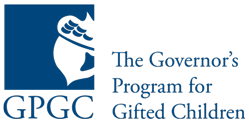Our older students (9th and 10 graders usually) are called “Grads” here at the Program. That’s a long story for another day but these students take college-level classes in the morning. This summer we are offering English (Creative Writing), Psychology in Film, and Special Topics in Criminal Justice.. Here are reports from Weeks One and Two for each of those classes.
Creative Writing (Mr. Avee Chaudhuri, Instructor):
Week One:
I spent Monday and Tuesday introducing, or re-introducing, myself to students. On Wednesday, I went over the syllabus and I explained my expectations for workshop. We talked a bit about the historiographical relevance of poetry and fiction, i.e. how creative texts form a cohesive alternative to national myths and narratives. I think this was an important discussion to have because hopefully it has disabused students of the belief that this class, because it’s largely craft-centered, will be intellectually or analytically shallow. On Thursday, we read and discussed the rules for writing put forth by several prominent authors in list form. These lists often contradict one another, and illustrate that there are no set rules for writing well. To each his or her own. The following maxim from Jonathan Franzen engendered the most debate: “It’s doubtful that anyone with an internet connection at his workplace is writing good fiction.” I was surprised to learn that many students agree with Franzen. I asked students to compile their own lists on writing well. They shared their lists on Friday and we began talking about poetry. I used William Blake’s “The Tyger” to review certain traditional elements of poetical language: rhyme, meter, lineation, etc. Next week, I’ll give the students a selection of contemporary poetry which challenges these conventions.
Week Two:
The Grad English class began the week by reading the poetry of Russell Edson, specifically “Ape” and “On The Eating of Mice.” Edson is considered the “father of the modern prose poem.” We talked at length about what distinction, if any, exists between prose poetry and micro- or flash fiction. The class readily, perhaps too readily, accepted my thesis that it is a matter of literary marketing, admittedly a jaded outlook but I think a fair one. We then discussed the lyrical and narrative impulses in poetry by reading Pablo Neruda and Kevin Young. I tried to disabuse the students of the belief that the lyrical and narrative impulses are mutually exclusive, although it remains to be seen how successful I was. On Wednesday we began discussing intertextuality and ekphrasis in poetry. On Thursday we discussed the political connotations of poetry, the visual elements of poetry, and I also lectured briefly on the Cento. We concluded the week by discussing how the poetry workshop will run next week, and doing a practice workshop.
Special Topics in Criminal Justice (Mrs. Jessica Markstorm, Instructor):
Week One:
This week was defined by the question “what is criminal justice?” Types of crimes ranging from mala prohibita, mala in se, felonies, misdemeanors, cybercrime, occupational crime, and visible crime were introduced to students. The elements of a crime, including mens rea, were discussed and a Supreme Court case was used to demonstrate statutory crimes, which do not require mens rea. Students debated the merits of the due process criminal model versus the crime control model. The week ended with an evaluation of victimology that included a discussion on who is most likely to be a victim of crime.
Week Two:
This week we discussed basic due process rights. We briefly covered the civil liberties established in the 4th, 5th, 6th, 8th, and 14th amendments. Supreme Court cases such as Gideon v. Wainright were used to illustrate incorporation of civil liberties to state governments. Students were introduced to defenses and excuses for committing crimes. Special attention was placed on Louisiana’s insanity excuse requirements. We also discussed basic aspects of policing, requirements of joining the police force, styles of policing, and the different sources of stress for police officers.
Psychology (Dr. Linda Brannon, Instructor):
Week One:
This session’s topic in psychology is Psychology in the Movies, and my goal is to present topics in perception, learning, memory, sleep and dreams, hypnosis, and altered states of consciousness from drugs. I hope to funnel these topics into the question: Is mind control possible? To accomplish the goal of exposing students to these topics in psychology and exploring the possibility of mind control, we will see movies that touch on these topics.
We began with a discussion of the definition of psychology and progressed to the history of psychology and how psychologists consider psychology to be a science. Many people have trouble accepting psychology as a science, partly because they focus on psychologists as therapists and partly because they view psychology as a subject that cannot fit within the rules of science.
To examine the discrepancy between the scientific view and mystical views, I showed the students scenes from the movie The Exorcism of Emily Rose, which presents a clash of views revolving around the death of a young woman, Emily Rose. One view is that Emily suffered from a medical condition; the other view is that Emily was possessed by demons. I wanted students to evaluate the evidence (as depicted in the movie). We will continue with some analysis and discussion next week and then proceed to topics of perception and learning.
Week Two:
This week was devoted to the topic of learning. We began with classical conditioning—Pavlov and the slobbering dogs—and analyzed that process. Then, we discussed the factors of consistency and timing, which affect this process of associative learning. Classical conditioning applies to a number of everyday responses, so we talked about examples from our own lives.
We moved on to the topic of operant conditioning, with the concepts of reinforcement and punishment. Students have some experience of positive reinforcement through the token economy, but we discussed examples and applications of this type of learning.
Students had a written assignment that covered psychology as a science and classical and operant conditioning.
Students saw the movie The Matrix to introduce the topic of perception, and we began a discussion of how tied we all are to our sensory and perceptual limitations.

